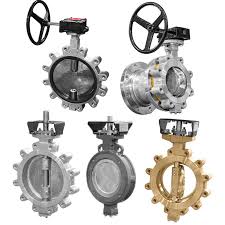
- Call Us
- +8618633052223
- njhdvlz@163.com
Jul . 20, 2024 02:31 Back to list
Factory Production of 15mm Butterfly Valves for Optimal Flow Control Solutions and Applications
Exploring the World of 15mm Butterfly Valves A Focus on Factory Production
Butterfly valves are essential components in many industrial applications, renowned for their simplicity, reliability, and efficiency in controlling the flow of liquids and gases. Among the various sizes available, the 15mm butterfly valve stands out for its compact design and versatility, making it a popular choice for different sectors, including water treatment, food and beverage production, and chemical processing. In this article, we will delve into the unique features and advantages of 15mm butterfly valves, with a particular emphasis on their manufacturing processes in factories.
Understanding Butterfly Valves
Butterfly valves function by rotating a disc to regulate the flow of fluid. This design allows for rapid opening and closing, minimizing pressure loss and ensuring efficient operation. The simplicity of the design also means fewer moving parts, leading to lower maintenance requirements and reduced wear over time. The 15mm size is particularly useful for applications requiring precise control in confined spaces, where larger valves would be impractical.
Importance of 15mm Size
The 15mm butterfly valve is commonly used in residential plumbing, heating, and cooling systems, as well as in small-scale industrial applications. Its compact size makes it ideal for tight installations, while still providing a strong and secure seal. Additionally, this size minimizes the amount of space taken up in piping systems, making overall layout designs simpler and more efficient.
Factory Production of 15mm Butterfly Valves
The production of 15mm butterfly valves involves several key steps, each of which is crucial to ensuring high quality and reliability. Factories that specialize in manufacturing these valves employ advanced technologies and skilled workers to produce components that meet strict industry standards.
butterfly valve 15mm factory

1. Material Selection The first step in the production process is selecting the appropriate materials. Common materials used for butterfly valves include brass, stainless steel, and various plastics. The choice of material depends on the specific application and the characteristics of the fluid or gas being controlled, such as temperature, pressure, and corrosiveness.
2. Casting and Machining Once the materials are selected, the manufacturing process typically begins with casting the valve body. This involves pouring molten metal into a mold to create the desired shape. Following the casting, precise machining is applied to ensure that the valve components meet exact specifications. This step is vital for achieving a proper fit and function.
3. Assembly After machining, the individual components of the butterfly valve are assembled. This includes the disc, shaft, and seals. Proper alignment and assembly are crucial to the valve’s ability to operate smoothly and maintain a tight seal under pressure.
4. Quality Control Quality assurance is an integral part of the manufacturing process. Factories implement rigorous testing protocols to ensure that each valve meets performance standards. These tests include pressure testing, leak testing, and functional testing to verify the valve's ability to open and close effectively.
5. Finishing Touches Finally, the valves are finished with protective coatings to enhance their durability and resistance to corrosion. This step not only improves the aesthetic appeal but also extends the life of the valves when applied in corrosive environments.
Conclusion
The 15mm butterfly valve is a vital component in various industries, offering the benefits of efficient flow control in a compact form. Understanding the factory production processes that lead to the creation of these valves emphasizes the importance of quality materials and precision engineering. As industries continue to evolve, the demand for reliable and efficient components like the 15mm butterfly valve will only grow, highlighting the need for continual advancements in manufacturing practices.
-
Stainless Steel Sanitary Butterfly Valve for Hygienic Flow Control
NewsJul.30,2025
-
High-Performance Groove Butterfly Valve for Easy Installation
NewsJul.30,2025
-
High-Quality 2 Inch Butterfly Valve for Precise Flow Control
NewsJul.29,2025
-
Double Flanged Short Pattern Butterfly Valve for Reliable Flow Control
NewsJul.29,2025
-
High Quality Wafer Check Valve Factories – Reliable Manufacturer & Supplier
NewsJul.29,2025
-
Stainless Steel Sanitary Butterfly Valve for Hygienic Applications
NewsJul.28,2025